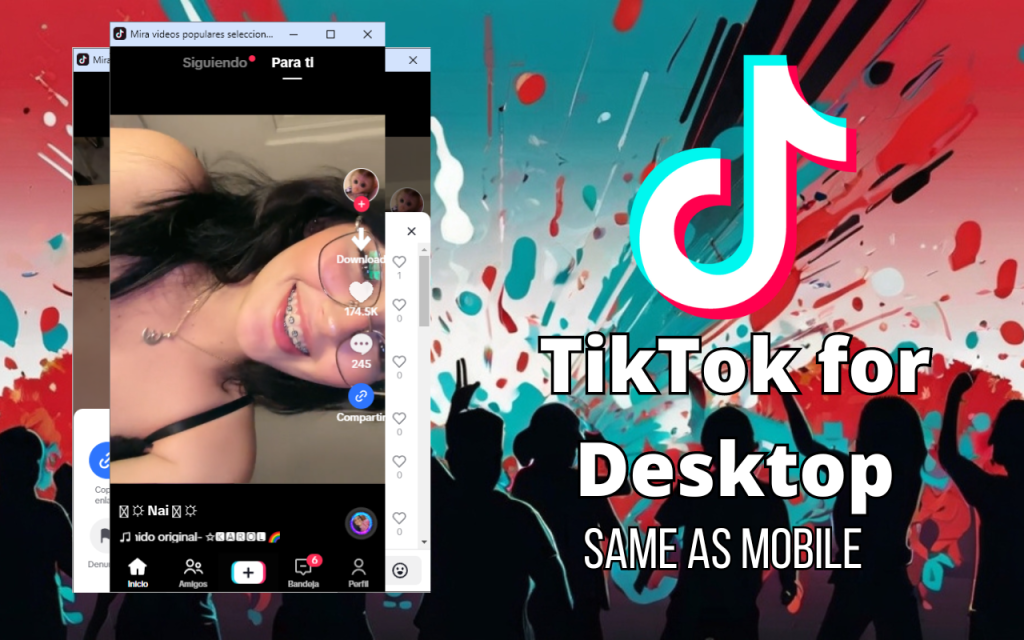Understanding the Privacy Concerns of TikTok Video Downloaders
In the age of social media, platforms like TikTok have surged in popularity, allowing users to create and share short videos with a global audience. While TikTok offers a vibrant community for creativity and connection, it also raises significant privacy concerns, especially regarding video downloaders that enable users to save content from the platform. One primary concern stem from the data collection practices associated with both TikTok and third-party video downloader applications. TikTok, owned by the Chinese company ByteDance, has faced scrutiny for its data handling practices, particularly regarding the personal information it collects from users. When users download videos using third-party apps, they often grant these applications access to their TikTok accounts and personal data. This can include sensitive information such as location data, browsing habits, and even contact lists, which can be exploited for advertising purposes or sold to third parties. Furthermore, many video downloader apps are not transparent about their data practices, leaving users unaware of what information is being collected and how it may be used. Another significant issue is the potential for malware or spyware. Some video downloader apps can be riddled with malicious software that can compromise users’ devices and personal information.

By downloading these applications, users may inadvertently expose themselves to security risks, including hacking and identity theft. The lack of regulation around these third-party apps exacerbates these risks, as many do not adhere to strict privacy standards. Additionally, the ease of downloading TikTok videos without proper attribution or consent raises ethical concerns. Users may find their content being reused without their permission, leading to potential copyright violations and the undermining of content creators’ rights. This not only affects individual creators but also contributes to a broader culture of content theft and plagiarism in the digital age. The issue of consent becomes increasingly complex when considering the viral nature of TikTok content; videos can be shared, downloaded, and re-uploaded across various platforms, often without the original creator’s knowledge or approval. Moreover, the potential for misuse of downloaded content poses risks not only to individuals but also to the broader TikTok community. Downloaded videos can be manipulated or altered, leading to the spread of misinformation or harmful content.
This can have significant implications, especially when videos that depict sensitive topics, such as mental health issues or social justice matters, are taken out of context and misrepresented. Users may find themselves implicated in controversies they did not intend to be part of, further complicating the landscape of online interaction. The tiktok download has implemented measures to mitigate these issues, such as allowing users to set their accounts to private or restrict who can download their videos. However, these controls are not foolproof, and many users remain unaware of the potential privacy risks associated with downloading their content. Additionally, the app’s algorithm prioritizes engagement and virality over privacy, often leading users to prioritize popularity over their own safety and well-being. For users, understanding the implications of using video downloaders is crucial. Educating oneself about the privacy policies of these applications, using reputable sources for downloads, and being aware of the potential risks associated with sharing content online are essential steps in navigating the digital landscape safely. Furthermore, users should consider the broader implications of their actions on TikTok and other social media platforms, recognizing that the digital footprints they leave can have lasting impacts on their privacy and security.
As the conversation around data privacy continues to evolve, it is imperative for users to advocate for their rights and demand transparency from both social media platforms and third-party applications. The landscape of digital privacy is constantly shifting, and remaining informed is key to ensuring a safer online experience. Overall, while TikTok provides a platform for creativity and connection, users must remain vigilant about the privacy concerns that accompany the use of video downloaders and the sharing of content. Engaging critically with the tools and applications we use, prioritizing our privacy, and advocating for responsible data practices will be essential in navigating the complexities of the digital age. By fostering a culture of awareness and responsibility, users can help shape a safer online environment that respects individual rights and promotes ethical content sharing. However, with this rise in popularity comes a myriad of privacy concerns, particularly related to the ability of users to download videos. TikTok’s video download feature allows users to save content directly to their devices, which may seem harmless at first glance.
Still, this functionality raises significant privacy issues, especially when considering the implications for both content creators and consumers. The act of downloading videos can lead to unauthorized distribution, copyright infringement, and potential misuse of personal information. Furthermore, the very nature of how TikTok operates gathering vast amounts of data on its users compounds these concerns, creating an environment where the line between private and public content becomes increasingly blurred. From the perspective of content creators, the ability to download videos introduces a host of challenges. When a video is downloaded, it can be altered, repurposed, or shared without the original creator’s consent, often leading to a loss of control over their intellectual property. This is particularly alarming in a digital landscape where virality can turn a simple video into a meme or be misrepresented in ways that could harm the creator’s reputation. Additionally, creators often rely on analytics to gauge their audience and the performance of their content. However, when videos are downloaded and shared outside of the TikTok ecosystem, the original creators lose valuable insights into how their content is consumed, making it difficult for them to build a sustainable presence on the platform.
This concern is magnified by the fact that TikTok’s algorithm favors original content, meaning that unauthorized downloads can detract from the visibility and reach of the original video, undermining the creator’s efforts. Moreover, the privacy concerns extend to the users who download videos. Many TikTok video downloaders are third-party applications or websites that may require users to input personal information, such as their TikTok username or even payment details. This introduces the risk of data breaches, phishing scams, and identity theft. Users may inadvertently expose themselves to malicious entities that could exploit their data for nefarious purposes. Furthermore, the downloaded content itself may contain metadata that reveals information about the creator, such as location data or other identifiable details, which could compromise their privacy and safety. As the debate around data privacy continues to intensify globally, it is essential for both users and creators to be aware of the potential risks associated with TikTok video downloaders and to engage with the platform in a manner that prioritizes safety and respect for intellectual property rights. Overall, the intersection of content sharing, privacy concerns, and digital ethics presents a complex challenge that requires ongoing dialogue and innovative solutions to protect all parties involved.
